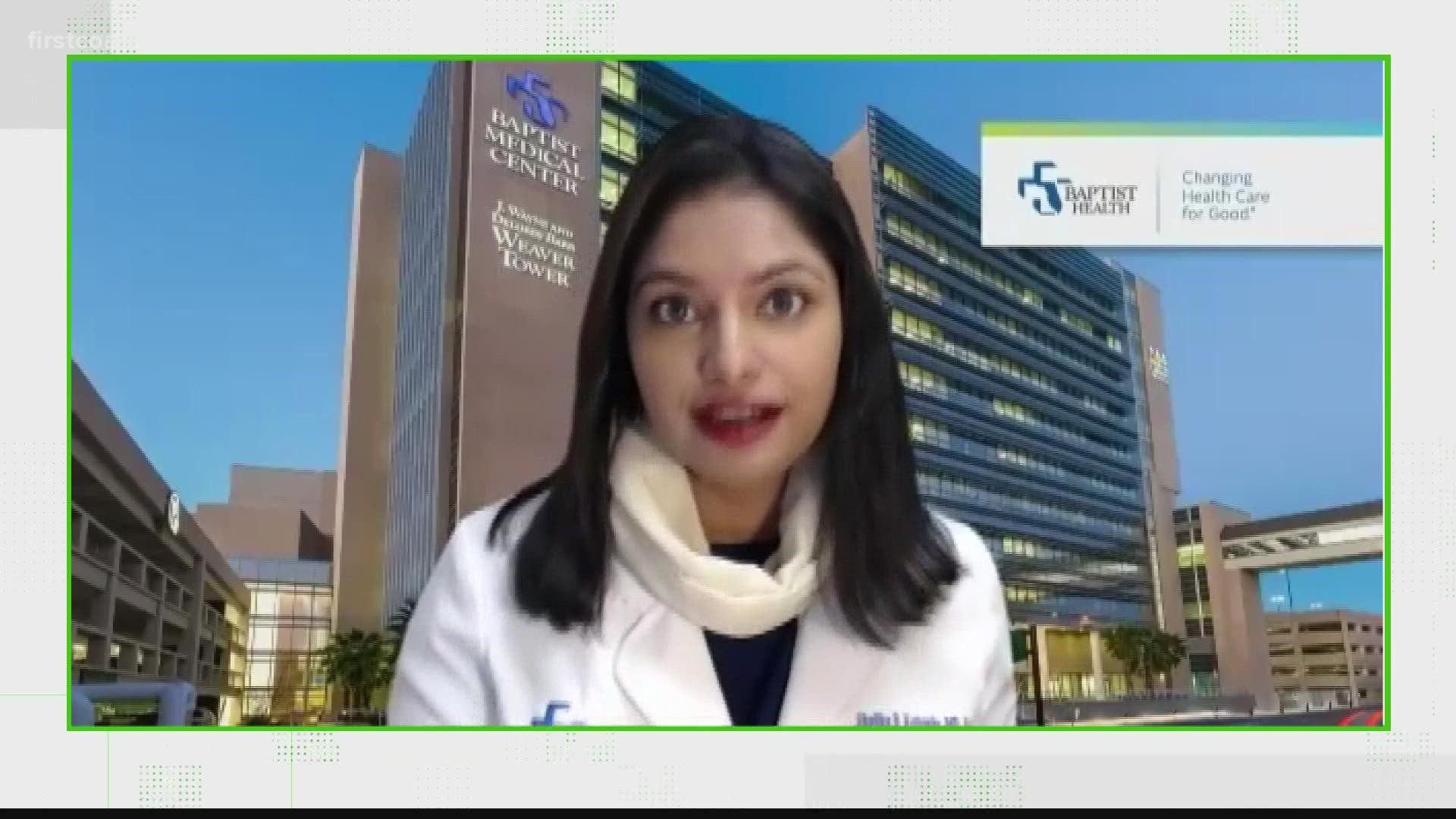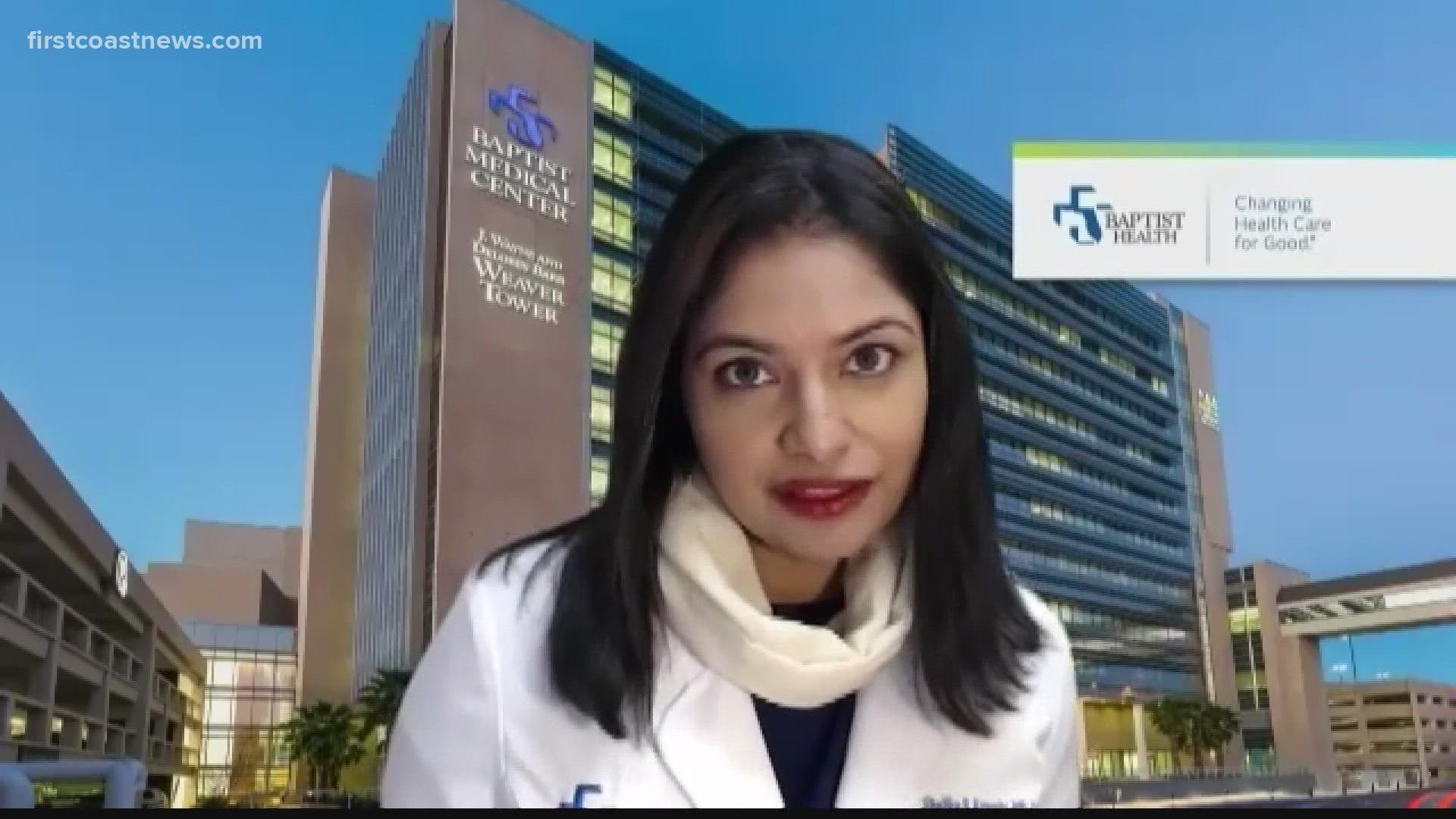JACKSONVILLE, Fla. — COVID-19 has evolved multiple times with multiple variants since 2019 when it was first discovered. Have you heard of long COVID? It's also known as post-COVID syndrome. That’s when a person experiences lasting side effects after catching COVID-19.
A study by the Fair Health analyzed health insurance records of about two million COVID-19 patients. They found 23.2% of patients have a post-COVID health condition.
THE QUESTION
Susan McCoy Fowler wrote in to First Coast News asking “Curious if the COVID long haulers are as prevalent with the delta and omicron variants as with original virus?”
THE SOURCES
- Dr. Shalika Katugaha, System Director, Infectious Diseases, Baptist Health.
- Centers for Disease Control
THE ANSWER
Yes, experts in the medical field say long COVID is still a thing with the newer variants.
WHAT WE FOUND
Let’s address the delta variant. Dr. Katugaha says they are seeing patients develop long COVID after contracting this variant.
“We are actually still very very much seeing post-COVID syndrome from the delta variant," she said. "Because now would be the time that it shows up.”
Katugaha says about four weeks to three months after catching COVID-19, you could wind up back in the doctor's office with symptoms such as fatigue, brain fog, shortness of breath, depression, anxiety, joint pain and even loss of taste or smell.
“This is more like a -- if I can describe it this way -- a chronic, slow-smoldering type effect," Katugaha said. "So they feel better but they know that they are not back to baseline. It is very irritating because they’re not able to functi9on to the capacity they were before.”
The only way to try to prevent long COVID is to get vaccinated. Vaccinated people, even if they catch COVID, are less likely to have long-term effects.
Let's talk omicron.
“It’s a little bit early right now," Katugaha said. "We are at the end of January, but this will be the point where we see the post-COVID syndrome associated with omicron."
"We don’t know exactly what it looks like yet with omicron compared with delta, but certainly doctors with the health care system anticipate that there will be a wave of post-COVID syndrome associated with omicron.”
How would you get diagnosed with this? Katugaha says once your doctor rules out other potential causes for your symptoms and traces back your COVID diagnosis, that’s when a doctor can determine if you have long COVID.
There is no treatment. Doctors will treat each of your symptoms separately.
Katugaha says it is still early, but they've seen long COVID last up to a year.


